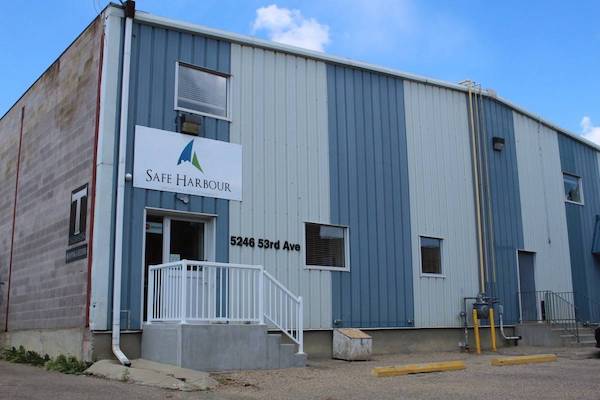Community
Safe Harbour Society says it has only 2 weeks to find new location for temporary homeless shelter

From the Safe Harbour Society
Safe Harbour is committed to building a safe and healthy community.
Community
Support local healthcare while winning amazing prizes!

|
|
|
|
|
|
Community
SPARC Caring Adult Nominations now open!

Check out this powerful video, “Be a Mr. Jensen,” shared by Andy Jacks. It highlights the impact of seeing youth as solutions, not problems. Mr. Jensen’s patience and focus on strengths gave this child hope and success.
👉 Be a Mr. Jensen: https://buff.ly/8Z9dOxf
Do you know a Mr. Jensen? Nominate a caring adult in your child’s life who embodies the spirit of Mr. Jensen. Whether it’s a coach, teacher, mentor, or someone special, share how they contribute to youth development. 👉 Nominate Here: https://buff.ly/tJsuJej
Nominate someone who makes a positive impact in the live s of children and youth. Every child has a gift – let’s celebrate the caring adults who help them shine! SPARC Red Deer will recognize the first 50 nominees. 💖🎉 #CaringAdults #BeAMrJensen #SeePotentialNotProblems #SPARCRedDeer
s of children and youth. Every child has a gift – let’s celebrate the caring adults who help them shine! SPARC Red Deer will recognize the first 50 nominees. 💖🎉 #CaringAdults #BeAMrJensen #SeePotentialNotProblems #SPARCRedDeer
-

 Media2 days ago
Media2 days agoCBC retracts false claims about residential schools after accusing Rebel News of ‘misinformation’
-

 Bjorn Lomborg2 days ago
Bjorn Lomborg2 days agoNet zero’s cost-benefit ratio is CRAZY high
-

 2025 Federal Election2 days ago
2025 Federal Election2 days agoMark Carney Wants You to Forget He Clearly Opposes the Development and Export of Canada’s Natural Resources
-

 2025 Federal Election2 days ago
2025 Federal Election2 days agoPolice Associations Endorse Conservatives. Poilievre Will Shut Down Tent Cities
-

 2025 Federal Election2 days ago
2025 Federal Election2 days agoCarney’s Hidden Climate Finance Agenda
-

 2025 Federal Election2 days ago
2025 Federal Election2 days agoPolls say Canadians will give Trump what he wants, a Carney victory.
-

 2025 Federal Election2 days ago
2025 Federal Election2 days agoColumnist warns Carney Liberals will consider a home equity tax on primary residences
-

 2025 Federal Election2 days ago
2025 Federal Election2 days agoNine Dead After SUV Plows Into Vancouver Festival Crowd, Raising Election-Eve Concerns Over Public Safety






